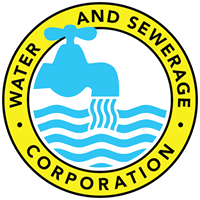HAVE YOU SWITCHED?
DO YOU:
![]() Rinse fruits, vegetables or other foods that are eaten raw?
Rinse fruits, vegetables or other foods that are eaten raw?![]() Wash your hands?
Wash your hands?![]() Bathe or brush your teeth?
Bathe or brush your teeth?![]() Wash clothes or dishes?
Wash clothes or dishes?
IF YOU ANSWERED YES TO ANY OF THESE QUESTIONS, HERE ARE SOME FACTS YOU SHOULD KNOW:
![]() Well water can be full of chemical pollutants. When you work in your yard or garden, chemicals used are washed into the groundwater surrounding your home.
Well water can be full of chemical pollutants. When you work in your yard or garden, chemicals used are washed into the groundwater surrounding your home.
![]() Well water can be polluted by leaking sewage.
Well water can be polluted by leaking sewage.
![]() Dead animals can pollute well water.
Dead animals can pollute well water.
![]() You are responsible for all the maintenance and repairs to your well.
You are responsible for all the maintenance and repairs to your well.
![]() In untreated and untested, well water can be deadly. It may contain heavy metal pollutants or chemicals like laundry detergent and bathroom cleaners that can cause harm.
In untreated and untested, well water can be deadly. It may contain heavy metal pollutants or chemicals like laundry detergent and bathroom cleaners that can cause harm.
![]() You cannot access well water if the power goes out. Modern wells are operated with electricity to power the pumps.
You cannot access well water if the power goes out. Modern wells are operated with electricity to power the pumps.
Chlorine is an effective disinfectant that kills germs in water, if it is administered properly and in the right doses.
Most chlorine treatment systems used for homes dont work continuously to disinfect water.
Many contaminants are odorless and tasteless. Some chemical contaminants are present in tiny amounts that only expensive and sophisticated equipment will detect.
Groundwater contaminated with bacteria, chemicals, pesticides, gasoline or oil can cause serious health problems.
You can get sick by drinking it or coming into contact with it. Illnesses can include diseases like Hepatitis A, gastroenteritis, nervous system disorders, liver or kidney failure, or cancer.
WHY USE CITY WATER?
THE WATER IS OBTAINED FROM NON-POLLUTED SOURCES.
95% of water supply is produced via reverse osmosis, which is a high quality product.
THE WATER IS PROPERLY TREATED FOR YOUR SAFETY.
Water is treated using a continuous chlorination process, thereby ensuing optimum results.
WATER QUALITY IS CONTINUOUSLY MONITORED.
The Water and Sewerage Corporation has full laboratory facilities and highly trained staff on hand to carry out quality control tests Island-wide.
WE CONTINUE TO EXPAND AND IMPROVE.
Construction works are ongoing to replace old water lines and extend service to new areas. Water quality has also improved over the years as customers now benefit from high quality water produced through a process called reverse osmosis (R/O).

